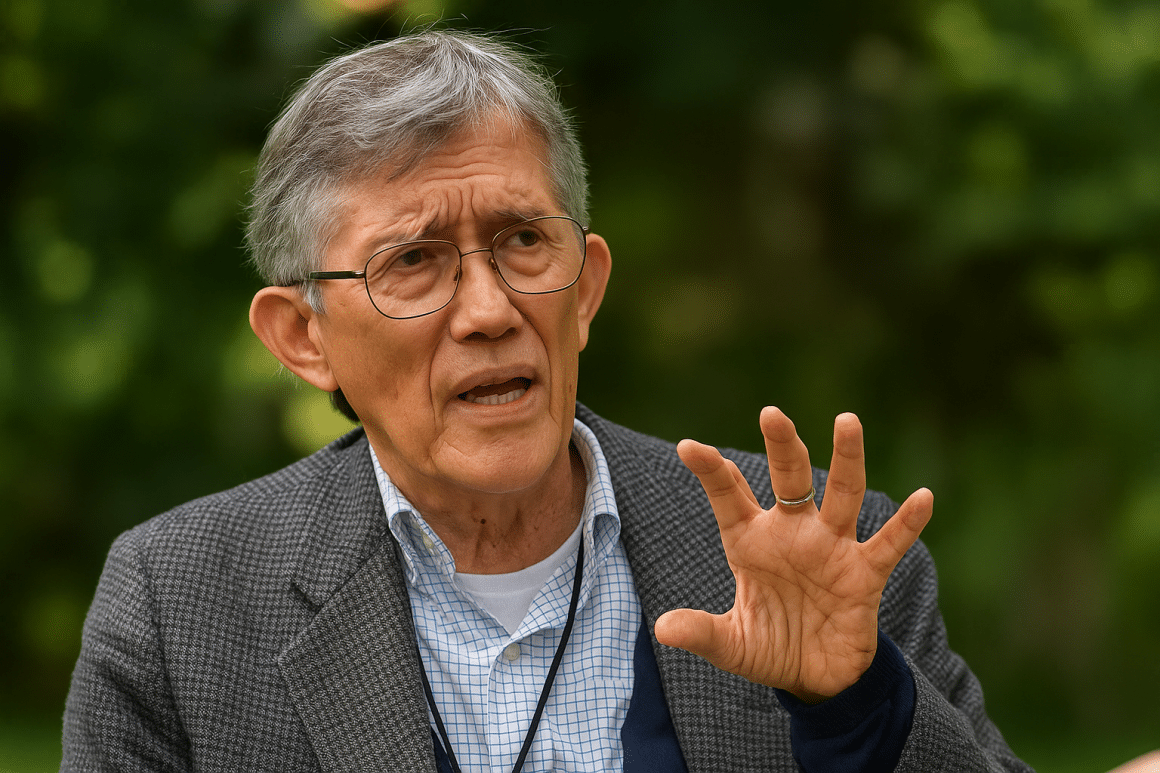Antonio Lazcano Araujo: The Challenges of Objective Science in a Politically Charged World

In a candid interview, renowned biologist Antonio Lazcano Araujo explores the complex interplay between scientific pursuit and the surrounding sociopolitical landscape. He argues that while scientists strive for objectivity, external pressures and biases inevitably shape our understanding of reality. This insightful discussion delves into the inherent tensions within scientific communities, the impact of political climates on research, and the unpredictable nature of scientific discovery.
Lazcano Araujo, a leading figure in the study of the origins of life, doesn't shy away from addressing the inherent challenges of maintaining objectivity in a world rife with competing interests and ideologies. He emphasizes that science isn't conducted in a vacuum; it’s deeply embedded within societal structures and subject to the prevailing cultural norms. This perspective is particularly relevant in today's climate, where scientific findings are often politicized and used to support pre-existing agendas.
The Sociopolitical Lens: How External Factors Influence Science
“We try to practice objective science,” Lazcano Araujo states, “but the sociopolitical environment skews our perception of reality.” He elaborates on how funding priorities, political pressures, and even public opinion can subtly, or not so subtly, influence the direction of scientific research. The pressure to publish, the competition for grants, and the desire to align with dominant narratives can all compromise the pursuit of pure knowledge.
He points to historical examples where scientific consensus has been challenged or suppressed due to political motivations. The debate surrounding climate change, for instance, vividly demonstrates how political interests can distort scientific findings and hinder progress towards addressing critical global challenges. Similarly, the history of eugenics and the misuse of genetics highlight the dangers of allowing ideologies to dictate scientific inquiry.
Internal Tensions and Conflicting Aspirations
Beyond external pressures, Lazcano Araujo also acknowledges the inherent tensions within scientific communities themselves. Different schools of thought, competing methodologies, and conflicting aspirations among researchers can lead to disagreements and debates that, while essential for scientific progress, can also create divisions and hinder collaboration. He stresses the importance of fostering open dialogue and critical evaluation within the scientific community to navigate these complexities.
The Unpredictable Nature of Discovery
Despite the challenges, Lazcano Araujo remains optimistic about the power of science to illuminate the world around us. He emphasizes the unpredictable nature of scientific discovery, highlighting that breakthroughs often arise from unexpected sources and defy conventional wisdom. The journey of scientific exploration is filled with uncertainties, setbacks, and moments of serendipity.
A Call for Critical Engagement
Ultimately, Lazcano Araujo’s interview serves as a powerful reminder of the importance of critical engagement with science. It encourages us to be aware of the potential biases and influences that can shape scientific knowledge and to approach scientific claims with a healthy dose of skepticism and a commitment to evidence-based reasoning. It is a crucial message for scientists, policymakers, and the public alike, particularly in an era of misinformation and polarization.

:format(jpg)/f.elconfidencial.com/original/a03/ccd/db6/a03ccddb624cfdb955e963ca3e3d3132.jpg)



